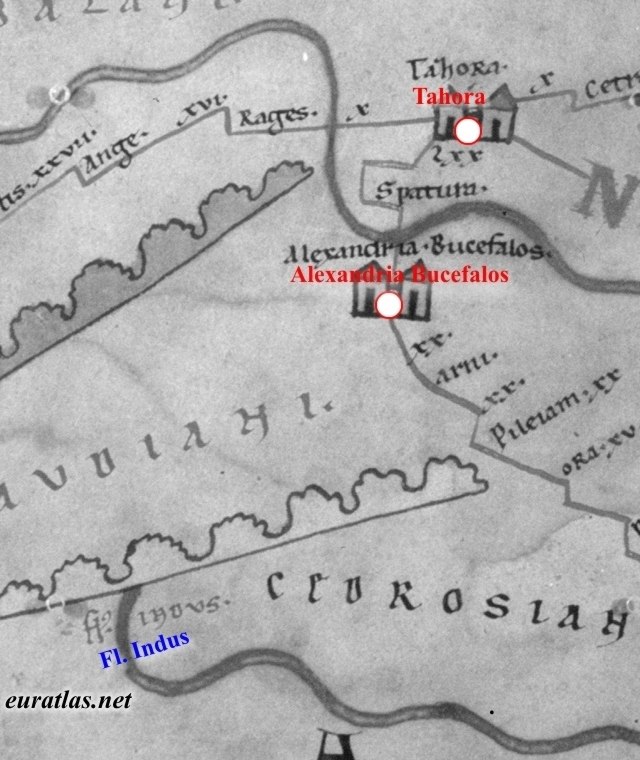Modern-Day 'Great Game' Plays Out In Baluchistan



Almost since Pakistan's birth, its government has been battling a low-level insurgency in the southwest region of Baluchistan.
The region accounts for nearly half of Pakistan's territory. Its strategic position and natural resources are attracting the involvement of foreign powers, which are making the insurgency worse.
Baluchistan is mostly a no-go zone for foreign journalists. But many Baluch nationalists escape the dangers and poverty of their homeland and travel to the port of Karachi to conduct business.
Many ordinary Baluchis in search of opportunity come to Baluch Para, a neighborhood of roughly 1,000 people in Karachi. Nationalist graffiti and posters of martyred and missing Baluch rebel leaders plaster the area's dusty walls.
A student activist says many young Baluchis see no hope in negotiating with a government that has ignored them for so long.
"Baluchistan has been with Pakistan for 62 or 63 years. What they got?" he asks indignantly. "They got nothing. They have no school, colleges, etc. After the experience of 62 or 63 years, you think the political process can solve the Baluchistan issue?"
The activist was concerned for his safety, so he spoke on the condition that he be identified only by his last name, Baluch. That's pretty good cover, since many Baluchis use that surname out of national pride.
Different Players, Same Game
Baluchistan is Pakistan's largest and most sparsely populated province. It borders on Iran and Afghanistan, where some Baluchis also live. Many Baluchis look physically different — their features are more Middle Eastern than South Asian — from other Pakistanis. Ethnically, the Baluch are related to the Kurds of Iraq and Turkey.
Islamabad has never established thorough control over Baluchistan. Its independent tribes have resisted invaders from Alexander the Great to the present day, much like the Pashtun who straddle the border with Afghanistan further north.
Baluch nationalist and former senator Tahir Bizenjo hears in all of this historical echoes of the days when the British and Russian empires once fought proxy wars and vied for spheres of influence in Baluchistan.
"To me, the 19th-century 'Great Game' has started in this region again," he observes, "but in different forms and with different players."
The most conspicuous player in Baluchistan right now is China. A government-owned firm is mining gold and copper at Saindak. But Baluchistan National Party Secretary-General Jehanzeb Baluch says the Baluch have been shut out of the profits.
"Every nation has a right to pursue its interest," he concedes. "But the means should be fair. They should make sure that their interests do not collide with the local people's interest."
Baluch nationalists say the Chinese employ few Baluchis in the mines, and the precious metals are taken back to China to be refined.
"Baluchis feel helpless that they are being sandwiched in all these powers and this great game," Jehanzeb Baluch continues. "The Chinese are interested in getting to the Straits of Hormuz, the energy corridor. The main gate of this corridor is Gwadar, Baluchistan."
The Chinese have helped build and run the port of Gwadar, which is located on the Arabian Sea, just 180 nautical miles from the entrance to the Persian Gulf.
A Counterweight To India
China's aim is to bring Middle Eastern oil into Gwadar, through Pakistan and into the adjoining Chinese territory of Xinjiang. This could be done by trucking the oil up the Karakorum highway, which connects the two countries, or by a yet-to-be-constructed rail link. This would bypass India and a strategic choke point at the Straits of Malacca.
University of Karachi international relations expert Farhan Siddiqui explains that China's strategy is to "establish good ties with Pakistan so that Pakistan can be used as a counterweight against India, in the same sense that the Americans are using, or utilizing, India as a counterweight to China."
One of the biggest complaints among the Baluch about foreign intervention in their region is that while the U.S. arms Pakistan's army to fight the Taliban, Islamabad uses U.S. weapons to kill the Baluch, says former senator Bizenjo.
"Washington has been the supporter of human rights violators, especially in Pakistan," he says. "No sensitive American citizen, if he is familiar with the politics of Pakistan, can deny it."
Baluch nationalists say more than a thousand of their people remain missing, many of them probably killed by Pakistani authorities. Many Baluchis believe the military killed Nawab Akhbar Bugti, the former governor of Baluchistan and a powerful sardar, or tribal leader.
Pakistan Wants 'Baluchistan, Not The Baluch'
Pakistan's federal government has promised to address the issue of the disappearances as part of a comprehensive deal on the Baluch issue. But nationalist leaders say the real power in Pakistan — the military — has no interest in compromising with the Baluch.
Jehanzeb Baluch, of the Baluchistan National Party, is especially pessimistic about Islamabad's intentions.
"They just want Baluchistan, not the Baluch," he says bitterly. "And any Baluch, according to Islamabad, who is a good Baluch is a dead Baluch."
Siddiqui, of the University of Karachi, says it is doubtful that Baluchistan could ever become independent, because the Baluch are deeply divided between seeking outright independence and seeking autonomy within Pakistan.
But many observers do see hope for autonomy in Baluchistan. They are particularly encouraged by the development of Baluch society. The rule of the sardars, who nationalists say have always been aligned with the central government, and their harsh tribal codes are fading. A well-educated Baluch middle class, meanwhile, is emerging and demanding its political rights.




